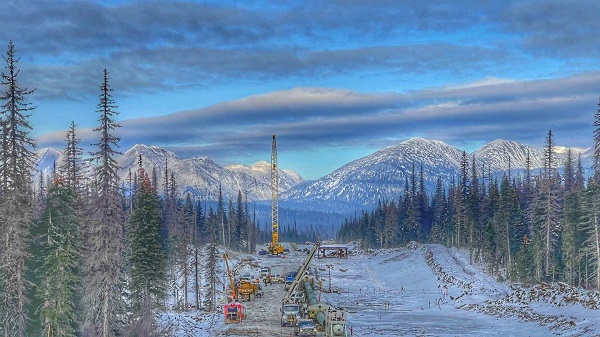Uncategorized
Zinke says Northern California fire costs likely in billions

PARADISE, Calif. — Costs associated with a deadly Northern California wildfire will likely be in the billions, U.S. Interior Secretary Ryan Zinke said Monday as he returned to the town of Paradise, saying he has never witnessed such devastation.
“There’s a lot of things I’d rather spend this federal money on rather than repairing damage of things that have been destroyed,” he said. Zinke nodded to other public services, such as improving visitor experiences at Yosemite National Park or thinning forests as options for the money.
No additional remains were found Monday, but the wildfire’s death toll rose to 88 after investigators determined that three separate sets of human remains contained remains from more than one person.
Butte County Sheriff Kory Honea said 203 names remain on the list of those unaccounted for after the Camp Fire swept through the rural area 140 miles (225
The pace of newly discovered remains has slowed in recent days, and Honea said searchers are making “good progress” as they methodically sweep through any property where people may have died.
“The remains that we are now recovering are now remains that were almost completely consumed by the fire,” he said. Anthropologists are sifting through bone fragments to help coroners identify the remains, he said.
Though he has declined to characterize how much of the area has been searched, Honea said that highly populated areas and places that were identified as possibly having deceased people have been fully searched and search teams are now spreading out into less dense areas of devastation.
The U.S. government has distributed more than $20 million in assistance for people displaced by the catastrophic wildfire in Northern California, a Federal Emergency Management Agency official said Monday as hundreds of searchers kept looking for more human remains.
The massive wildfire that destroyed nearly 14,000 homes in the town of Paradise and surrounding communities was fully contained over the weekend after igniting more than two weeks ago.
FEMA spokesman Frank Mansell told The Associated Press that $15.5 million has been spent on housing assistance, including vouchers for hotel rooms. During an interview in the city of Chico, he said disaster response is in an early phase but many people will eventually get longer-term housing in trailers or apartments.
FEMA also has distributed $5 million to help with other needs, including funeral expenses, he said.
About 17,000 people have registered with the federal disaster agency, which will look at insurance coverage, assets and other factors to determine how much assistance they are eligible for, Mansell said.
Meanwhile, the list of people who are unaccounted for has dropped from a high of 1,300 to the “high 200s” Monday, Butte County Sheriff Kory Honea said. He said the number of volunteers searching for the missing and dead has been reduced to about 200 Monday from 500 Sunday after many of those reported missing were found over the weekend.
“We made great progress,” Honea said.
Zinke said building restrictions in fire-prone areas should be part of a discussion about protections from wildfires.
“When we rebuild, having a frank discussion whether it’s appropriate to rebuild every place is an important part of the equation,” he told The Associated Press. He did not say Paradise should avoid rebuilding, noting the town has expanded evacuation routes and would be safer with more aggressive efforts to cut thin forests and built vegetation-free fire breaks that could stop advancing flames.
U.S. Agriculture Secretary Sonny Perdue joined Zinke on a tour of Paradise, which was decimated by the fire that ignited in the parched Sierra Nevada foothills Nov. 8 and quickly spread across 240 square miles (620 square
Perdue suggested donating timber from the nearby Plumas National Forest to rebuild Paradise.
Zinke and Perdue’s trip to Paradise marks their latest in a series of efforts to promote their message that lawsuits from environmentalists and government red tape stand in the way of thinning overgrown forests and mitigating the severity of wildfires in the future. The duo spoke to reporters in a conference call last week, and Zinke promoted a similar message on an earlier visit to Paradise.
The secretaries toured a parcel of forested land that had been aggressively managed in recent years to remove flammable brush, and called for easing federal and state regulations requiring environmental reviews before such work can take place.
“We need to get out of the litigation business and into the mitigation business,” Perdue told reporters in a news conference at a charred section of downtown Paradise.
California lawmakers earlier this year approved $1 billion in funding over the next five years for forest clearing operations.
The firefight got a boost last week from the first significant storm to hit California this year, which dropped several inches of rain over the burn area without causing significant mudslides.
___
Associated Press writer Paul Elias also contributed to this report.
Jonathan J. Cooper, The Associated Press
Uncategorized
Alleged Human Traffickers arrested in Red Deer, Montreal, and Edmonton

Human trafficking suspect arrested in Red Deer, July 2024
From Alert, the Alberta Law Enforcement Response Team
Three human traffickers arrested in Project Endgame
Three men have been arrested and stand accused of running a human trafficking operation that stretched across Canada; operating throughout Alberta, British Columbia, Saskatchewan, and Quebec.
Project Endgame was a year-long investigation led by ALERT’s Human Trafficking unit, and also relied on the assistance of the Edmonton Police Service, RCMP, and the Quebec joint forces Anti-Pimping team known as EILP.
Arrests and search warrants had taken place in Edmonton, Montreal, and Red Deer. A total of 23 charges related to human trafficking offences have been laid against Clyde Elien-Abbot, 31, Kevin Dorcelus-Cetoute, 31, and Jean Rodnil Dubois, 31. Elien-Abbot was arrested on January 31, 2025 in Edmonton, while the other two accused were arrested on July 23, 2024.
|
|
|
|
Uncategorized
All 6 people trying to replace Trudeau agree with him on almost everything
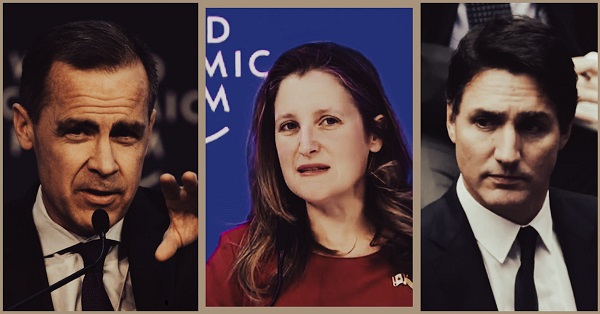
From LifeSiteNews
The Liberals are choosing a new face, but all six contenders seem likely to continue forcing Canadians down the same path as the PM they’re out to replace
With the Liberal leadership election just over a month away on March 9, Canadians are examining the six final contenders and questioning if they will bring change to the Liberal Party or carry on Prime Minister Justin Trudeau’s radical legacy.
The six contenders for Liberal leader and consequently, the next prime minister, are: Mark Carney, Chrystia Freeland, Karina Gould, Jaime Battiste, Frank Baylis and Ruby Dhalla.
While all the above candidates are promising to turn the Liberal Party around, their policies, both past and proposed, suggest little difference from the radical, anti-life and globalist agenda embraced by the Trudeau government.
Former Governor of the Bank of England Mark Carney
Carney appears to be the frontrunner for Liberal Party leader, with many mainstream outlets tacitly promoting him as a solution for Canadians, and numerous MPs having endorsed his campaign.
However, as LifeSiteNews has previously reported, Carney’s history suggests he would be an even more radical version of Trudeau.
While his impressive work experience certainly raises him in the estimation of Canadians, especially compared with Trudeau’s pre-political career as a drama teacher, the former Governor of the Bank of England, like Trudeau, openly supports abortion, the LGBT agenda and many of the tax and fiscal policies of the Trudeau government, such as the carbon tax.
Carney’s endorsement of energy regulations go even further than Trudeau’s, with the candidate having previously blasted the prime minister for exempting home heating oil from the carbon tax.
Carney has also been a longtime supporter of the globalist World Economic Forum, attending their infamous annual conference in Davos, Switzerland as recently as January 2023.
Carney routinely uses social media to advocate for achieving so-called “net-zero” energy goals, and even had his team bar multiple independent journalists from attending the press conference he held to announce his bid for Liberal leader.
Former Deputy Prime Minister Chrystia Freeland
Freeland’s bid for Liberal leader came as a surprise to many as it closely followed her resignation from Trudeau’s cabinet.
Freeland is perhaps best known internationally for her heavy-handed response to anti-mandate Freedom Convoy protesters, which saw the then-finance minister direct financial institutions to freeze the bank accounts of Canadians who participated in or donated to the protest.
Freeland, like Carney, also has extensive ties to the WEF, with her receiving a personal commendation from former WEF leader Klaus Schwab.
Interestingly, at the same time as Freeland announced her Liberal bid, the WEF’s profile on Freeland was taken down from their website. Additionally, the majority of Freeland’s Instagram posts have been removed from public view.
Many have speculated online as to the reason why these actions were taken, with some suggesting that Freeland desires to distance herself from the massively criticized group.
Critics often pointed to Freeland’s association with the group during her tenure as finance minister and deputy prime minister, as she was known for pushing policies endorsed by the globalist organization, such as the carbon tax and online censorship.
Former House Leader MP Karina Gould
Gould, an avid abortion activist, is perhaps best known for telling American women that they can have their abortions in Canada following the Supreme Court of the United States’ overturning of Roe v. Wade in 2022.
Gould is also known for continually advocating in favor of state-funded media, which critics have warned causes supposedly unbiased news outlets into de facto propaganda arms for the state.
In one example from September, Gould directed mainstream media reporters to “scrutinize” Conservative Party leader Pierre Poilievre, who has repeatedly accused government-funded media as being an arm of the Liberals.
Gould also claimed that Poilievre’s promise to defund outlets like the Canadian Broadcasting Corporation would deny Canadians access to important information, ignoring the fact that the Liberals’ own legislation, which she voted for, blocked all access to news content on Facebook and Instagram.
MP Jaime Battiste
Voting records show that in 2021 Battiste opposed a bill aiming to protect unborn children from sex-selective abortions. Later that same month, he voted to pass Bill C-6, which allows parents to be jailed for up to five years for refusing to deny the biological sex of their gender-confused children.
Furthermore, Battiste struck down a motion to condemn incidents of arson and vandalism of churches across Canada. In October 2023, a Conservative MP put forward a motion to denounce the arson and vandalism of 83 Canadian churches, especially those within Indigenous communities.
However, Battiste moved to adjourn the meeting rather than discuss the motion, saying, “I would like to call to adjourn debate on this if that’s what we can do, so we can hear the rest of the study, but if we have to, then I would rather discuss it in camera because it does have a way of triggering a lot of people who went through residential schools and the things they are going through.”
The Liberal government is known to be extremely lenient in their rhetoric when it comes to attacks on Catholic churches, with Trudeau even saying such behavior was “understandable” even if it is “unacceptable and wrong.”
Former MP Frank Baylis
Baylis served as a Liberal MP in 2015 but chose not to seek re-election in 2019. Now, he has thrown his hat in the ring as Liberal leader.
During his time as MP, Baylis was a staunch supporter of abortion. In 2016, he voted against a Conservative bill to provide protection to unborn children and pregnant mothers from violence.
Interestingly, Baylis is the former owner of the Baylis Medical Company of Montréal which was awarded a $282.5 million government contract for now “useless” ventilators during the COVID “pandemic.”
Former MP Ruby Dhalla
Dhalla served in the House of Commons from 2004 to 2011. Interestingly, Dhalla, born to Indian immigrant parents, has promised to deport illegal immigrants and “clamp down on human traffickers.” Dhalla’s stance sets her apart from the other Liberal candidates on the issue.
While Dhalla styles herself as an “outsider,” during her time as an MP, she worked to further abortion in Canada, voting against legislation to protect babies from violence in the womb.
In conclusion
It seems that no matter who is selected as the next leader of the Liberals, the party will remain one which prides itself on being pro-abortion, pro-LGBT, pro-euthanasia and globalist in vision.
While Trudeau may be taking the blame for the current state of the Liberal Party, with these 6 candidates it would appear that the party remains intent on pushing the same policies.
Although it is true that Trudeau’s political blunders, such as his repeated historical use of black-face or his inviting a Nazi-aligned World War II veteran into Parliament, have contributed to his popularity decline, it seems the policies behind the blunders are not his, but the Liberal Party’s itself.
-

 Business2 days ago
Business2 days agoPepsiCo joins growing list of companies tweaking DEI policies
-

 Business1 day ago
Business1 day agoWorst kept secret—red tape strangling Canada’s economy
-
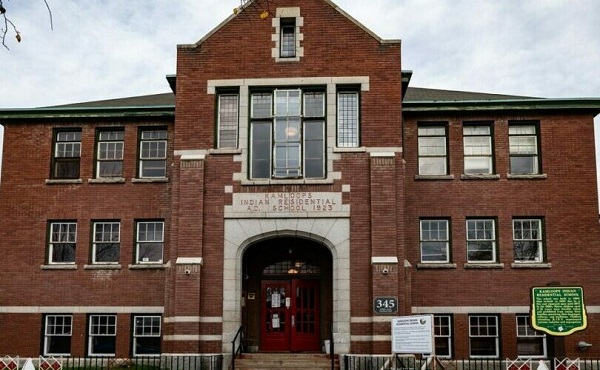
 Indigenous2 days ago
Indigenous2 days agoTrudeau gov’t to halt funds for ‘unmarked graves’ search after millions spent, no bodies found
-
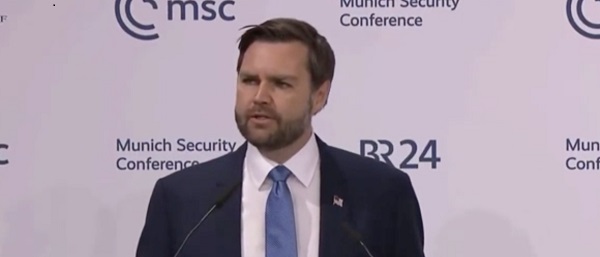
 Daily Caller1 day ago
Daily Caller1 day agoNEWT GINGRICH: Europe’s Elites Were Finally Told To Take A Look In The Mirror
-
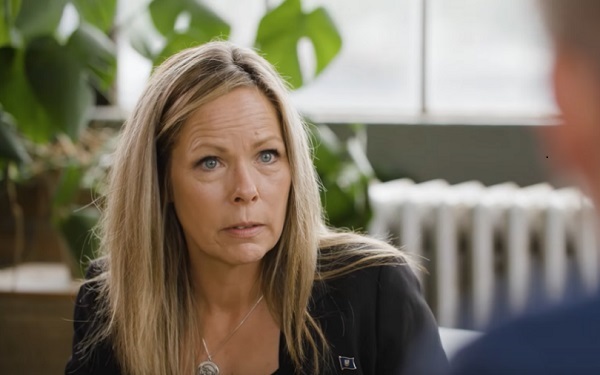
 COVID-192 days ago
COVID-192 days agoFreedom Convoy’s Tamara Lich shares heartfelt letter from children: ‘God will be by your side’
-
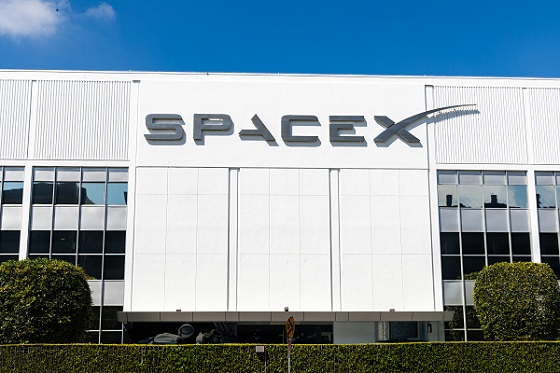
 Business2 days ago
Business2 days agoDOJ drops Biden-era discrimination lawsuit against Elon Musk’s SpaceX
-

 Daily Caller1 day ago
Daily Caller1 day agoKash Patel First Statement As FBI Director, Tells Media ‘Bring It On’
-

 National1 day ago
National1 day agoAndrew Scheer exposes the Mark Carney Canadians should know
Uncategorized
Zinke says Northern California fire costs likely in billions

PARADISE, Calif. — Costs associated with a deadly Northern California wildfire will likely be in the billions, U.S. Interior Secretary Ryan Zinke said Monday as he returned to the town of Paradise, saying he has never witnessed such devastation.
“There’s a lot of things I’d rather spend this federal money on rather than repairing damage of things that have been destroyed,” he said. Zinke nodded to other public services, such as improving visitor experiences at Yosemite National Park or thinning forests as options for the money.
No additional remains were found Monday, but the wildfire’s death toll rose to 88 after investigators determined that three separate sets of human remains contained remains from more than one person.
Butte County Sheriff Kory Honea said 203 names remain on the list of those unaccounted for after the Camp Fire swept through the rural area 140 miles (225
The pace of newly discovered remains has slowed in recent days, and Honea said searchers are making “good progress” as they methodically sweep through any property where people may have died.
“The remains that we are now recovering are now remains that were almost completely consumed by the fire,” he said. Anthropologists are sifting through bone fragments to help coroners identify the remains, he said.
Though he has declined to characterize how much of the area has been searched, Honea said that highly populated areas and places that were identified as possibly having deceased people have been fully searched and search teams are now spreading out into less dense areas of devastation.
The U.S. government has distributed more than $20 million in assistance for people displaced by the catastrophic wildfire in Northern California, a Federal Emergency Management Agency official said Monday as hundreds of searchers kept looking for more human remains.
The massive wildfire that destroyed nearly 14,000 homes in the town of Paradise and surrounding communities was fully contained over the weekend after igniting more than two weeks ago.
FEMA spokesman Frank Mansell told The Associated Press that $15.5 million has been spent on housing assistance, including vouchers for hotel rooms. During an interview in the city of Chico, he said disaster response is in an early phase but many people will eventually get longer-term housing in trailers or apartments.
FEMA also has distributed $5 million to help with other needs, including funeral expenses, he said.
About 17,000 people have registered with the federal disaster agency, which will look at insurance coverage, assets and other factors to determine how much assistance they are eligible for, Mansell said.
Meanwhile, the list of people who are unaccounted for has dropped from a high of 1,300 to the “high 200s” Monday, Butte County Sheriff Kory Honea said. He said the number of volunteers searching for the missing and dead has been reduced to about 200 Monday from 500 Sunday after many of those reported missing were found over the weekend.
“We made great progress,” Honea said.
Zinke said building restrictions in fire-prone areas should be part of a discussion about protections from wildfires.
“When we rebuild, having a frank discussion whether it’s appropriate to rebuild every place is an important part of the equation,” he told The Associated Press. He did not say Paradise should avoid rebuilding, noting the town has expanded evacuation routes and would be safer with more aggressive efforts to cut thin forests and built vegetation-free fire breaks that could stop advancing flames.
U.S. Agriculture Secretary Sonny Perdue joined Zinke on a tour of Paradise, which was decimated by the fire that ignited in the parched Sierra Nevada foothills Nov. 8 and quickly spread across 240 square miles (620 square
Perdue suggested donating timber from the nearby Plumas National Forest to rebuild Paradise.
Zinke and Perdue’s trip to Paradise marks their latest in a series of efforts to promote their message that lawsuits from environmentalists and government red tape stand in the way of thinning overgrown forests and mitigating the severity of wildfires in the future. The duo spoke to reporters in a conference call last week, and Zinke promoted a similar message on an earlier visit to Paradise.
The secretaries toured a parcel of forested land that had been aggressively managed in recent years to remove flammable brush, and called for easing federal and state regulations requiring environmental reviews before such work can take place.
“We need to get out of the litigation business and into the mitigation business,” Perdue told reporters in a news conference at a charred section of downtown Paradise.
California lawmakers earlier this year approved $1 billion in funding over the next five years for forest clearing operations.
The firefight got a boost last week from the first significant storm to hit California this year, which dropped several inches of rain over the burn area without causing significant mudslides.
___
Associated Press writer Paul Elias also contributed to this report.
Jonathan J. Cooper, The Associated Press
Uncategorized
Alleged Human Traffickers arrested in Red Deer, Montreal, and Edmonton

Human trafficking suspect arrested in Red Deer, July 2024
From Alert, the Alberta Law Enforcement Response Team
Three human traffickers arrested in Project Endgame
Three men have been arrested and stand accused of running a human trafficking operation that stretched across Canada; operating throughout Alberta, British Columbia, Saskatchewan, and Quebec.
Project Endgame was a year-long investigation led by ALERT’s Human Trafficking unit, and also relied on the assistance of the Edmonton Police Service, RCMP, and the Quebec joint forces Anti-Pimping team known as EILP.
Arrests and search warrants had taken place in Edmonton, Montreal, and Red Deer. A total of 23 charges related to human trafficking offences have been laid against Clyde Elien-Abbot, 31, Kevin Dorcelus-Cetoute, 31, and Jean Rodnil Dubois, 31. Elien-Abbot was arrested on January 31, 2025 in Edmonton, while the other two accused were arrested on July 23, 2024.
|
|
|
|
Uncategorized
All 6 people trying to replace Trudeau agree with him on almost everything

From LifeSiteNews
The Liberals are choosing a new face, but all six contenders seem likely to continue forcing Canadians down the same path as the PM they’re out to replace
With the Liberal leadership election just over a month away on March 9, Canadians are examining the six final contenders and questioning if they will bring change to the Liberal Party or carry on Prime Minister Justin Trudeau’s radical legacy.
The six contenders for Liberal leader and consequently, the next prime minister, are: Mark Carney, Chrystia Freeland, Karina Gould, Jaime Battiste, Frank Baylis and Ruby Dhalla.
While all the above candidates are promising to turn the Liberal Party around, their policies, both past and proposed, suggest little difference from the radical, anti-life and globalist agenda embraced by the Trudeau government.
Former Governor of the Bank of England Mark Carney
Carney appears to be the frontrunner for Liberal Party leader, with many mainstream outlets tacitly promoting him as a solution for Canadians, and numerous MPs having endorsed his campaign.
However, as LifeSiteNews has previously reported, Carney’s history suggests he would be an even more radical version of Trudeau.
While his impressive work experience certainly raises him in the estimation of Canadians, especially compared with Trudeau’s pre-political career as a drama teacher, the former Governor of the Bank of England, like Trudeau, openly supports abortion, the LGBT agenda and many of the tax and fiscal policies of the Trudeau government, such as the carbon tax.
Carney’s endorsement of energy regulations go even further than Trudeau’s, with the candidate having previously blasted the prime minister for exempting home heating oil from the carbon tax.
Carney has also been a longtime supporter of the globalist World Economic Forum, attending their infamous annual conference in Davos, Switzerland as recently as January 2023.
Carney routinely uses social media to advocate for achieving so-called “net-zero” energy goals, and even had his team bar multiple independent journalists from attending the press conference he held to announce his bid for Liberal leader.
Former Deputy Prime Minister Chrystia Freeland
Freeland’s bid for Liberal leader came as a surprise to many as it closely followed her resignation from Trudeau’s cabinet.
Freeland is perhaps best known internationally for her heavy-handed response to anti-mandate Freedom Convoy protesters, which saw the then-finance minister direct financial institutions to freeze the bank accounts of Canadians who participated in or donated to the protest.
Freeland, like Carney, also has extensive ties to the WEF, with her receiving a personal commendation from former WEF leader Klaus Schwab.
Interestingly, at the same time as Freeland announced her Liberal bid, the WEF’s profile on Freeland was taken down from their website. Additionally, the majority of Freeland’s Instagram posts have been removed from public view.
Many have speculated online as to the reason why these actions were taken, with some suggesting that Freeland desires to distance herself from the massively criticized group.
Critics often pointed to Freeland’s association with the group during her tenure as finance minister and deputy prime minister, as she was known for pushing policies endorsed by the globalist organization, such as the carbon tax and online censorship.
Former House Leader MP Karina Gould
Gould, an avid abortion activist, is perhaps best known for telling American women that they can have their abortions in Canada following the Supreme Court of the United States’ overturning of Roe v. Wade in 2022.
Gould is also known for continually advocating in favor of state-funded media, which critics have warned causes supposedly unbiased news outlets into de facto propaganda arms for the state.
In one example from September, Gould directed mainstream media reporters to “scrutinize” Conservative Party leader Pierre Poilievre, who has repeatedly accused government-funded media as being an arm of the Liberals.
Gould also claimed that Poilievre’s promise to defund outlets like the Canadian Broadcasting Corporation would deny Canadians access to important information, ignoring the fact that the Liberals’ own legislation, which she voted for, blocked all access to news content on Facebook and Instagram.
MP Jaime Battiste
Voting records show that in 2021 Battiste opposed a bill aiming to protect unborn children from sex-selective abortions. Later that same month, he voted to pass Bill C-6, which allows parents to be jailed for up to five years for refusing to deny the biological sex of their gender-confused children.
Furthermore, Battiste struck down a motion to condemn incidents of arson and vandalism of churches across Canada. In October 2023, a Conservative MP put forward a motion to denounce the arson and vandalism of 83 Canadian churches, especially those within Indigenous communities.
However, Battiste moved to adjourn the meeting rather than discuss the motion, saying, “I would like to call to adjourn debate on this if that’s what we can do, so we can hear the rest of the study, but if we have to, then I would rather discuss it in camera because it does have a way of triggering a lot of people who went through residential schools and the things they are going through.”
The Liberal government is known to be extremely lenient in their rhetoric when it comes to attacks on Catholic churches, with Trudeau even saying such behavior was “understandable” even if it is “unacceptable and wrong.”
Former MP Frank Baylis
Baylis served as a Liberal MP in 2015 but chose not to seek re-election in 2019. Now, he has thrown his hat in the ring as Liberal leader.
During his time as MP, Baylis was a staunch supporter of abortion. In 2016, he voted against a Conservative bill to provide protection to unborn children and pregnant mothers from violence.
Interestingly, Baylis is the former owner of the Baylis Medical Company of Montréal which was awarded a $282.5 million government contract for now “useless” ventilators during the COVID “pandemic.”
Former MP Ruby Dhalla
Dhalla served in the House of Commons from 2004 to 2011. Interestingly, Dhalla, born to Indian immigrant parents, has promised to deport illegal immigrants and “clamp down on human traffickers.” Dhalla’s stance sets her apart from the other Liberal candidates on the issue.
While Dhalla styles herself as an “outsider,” during her time as an MP, she worked to further abortion in Canada, voting against legislation to protect babies from violence in the womb.
In conclusion
It seems that no matter who is selected as the next leader of the Liberals, the party will remain one which prides itself on being pro-abortion, pro-LGBT, pro-euthanasia and globalist in vision.
While Trudeau may be taking the blame for the current state of the Liberal Party, with these 6 candidates it would appear that the party remains intent on pushing the same policies.
Although it is true that Trudeau’s political blunders, such as his repeated historical use of black-face or his inviting a Nazi-aligned World War II veteran into Parliament, have contributed to his popularity decline, it seems the policies behind the blunders are not his, but the Liberal Party’s itself.
-

 Business2 days ago
Business2 days agoPepsiCo joins growing list of companies tweaking DEI policies
-

 Business1 day ago
Business1 day agoWorst kept secret—red tape strangling Canada’s economy
-

 Indigenous2 days ago
Indigenous2 days agoTrudeau gov’t to halt funds for ‘unmarked graves’ search after millions spent, no bodies found
-

 Daily Caller1 day ago
Daily Caller1 day agoNEWT GINGRICH: Europe’s Elites Were Finally Told To Take A Look In The Mirror
-

 COVID-192 days ago
COVID-192 days agoFreedom Convoy’s Tamara Lich shares heartfelt letter from children: ‘God will be by your side’
-

 Business2 days ago
Business2 days agoDOJ drops Biden-era discrimination lawsuit against Elon Musk’s SpaceX
-

 Daily Caller1 day ago
Daily Caller1 day agoKash Patel First Statement As FBI Director, Tells Media ‘Bring It On’
-

 National1 day ago
National1 day agoAndrew Scheer exposes the Mark Carney Canadians should know





